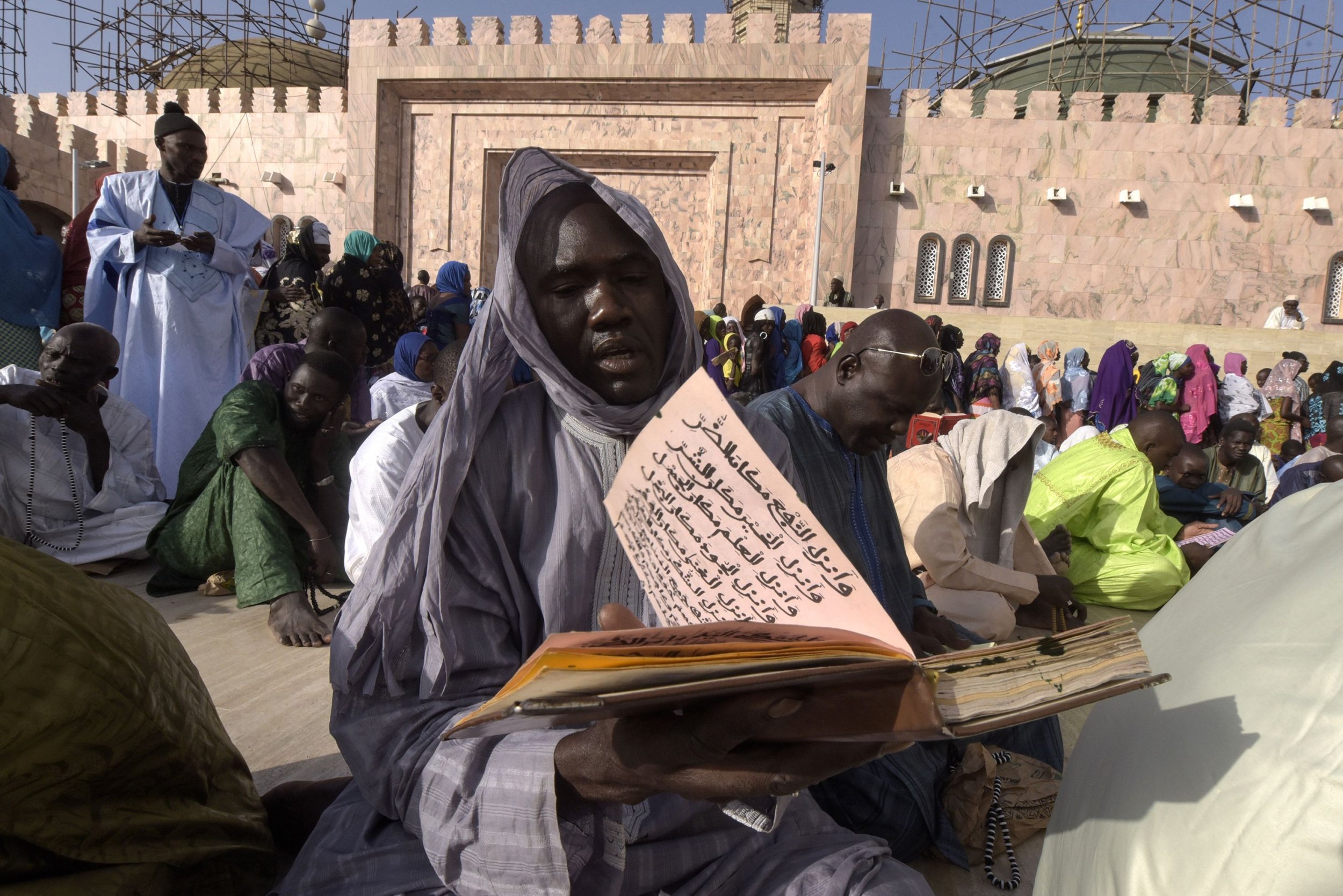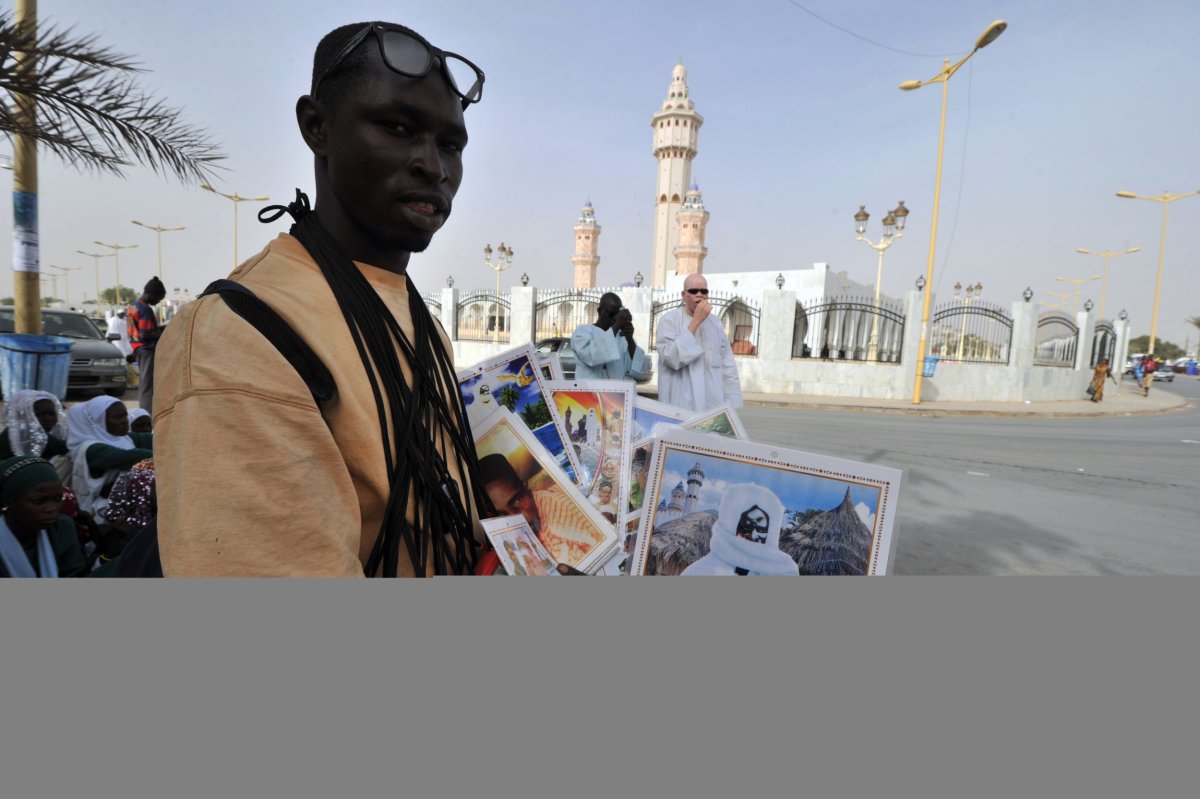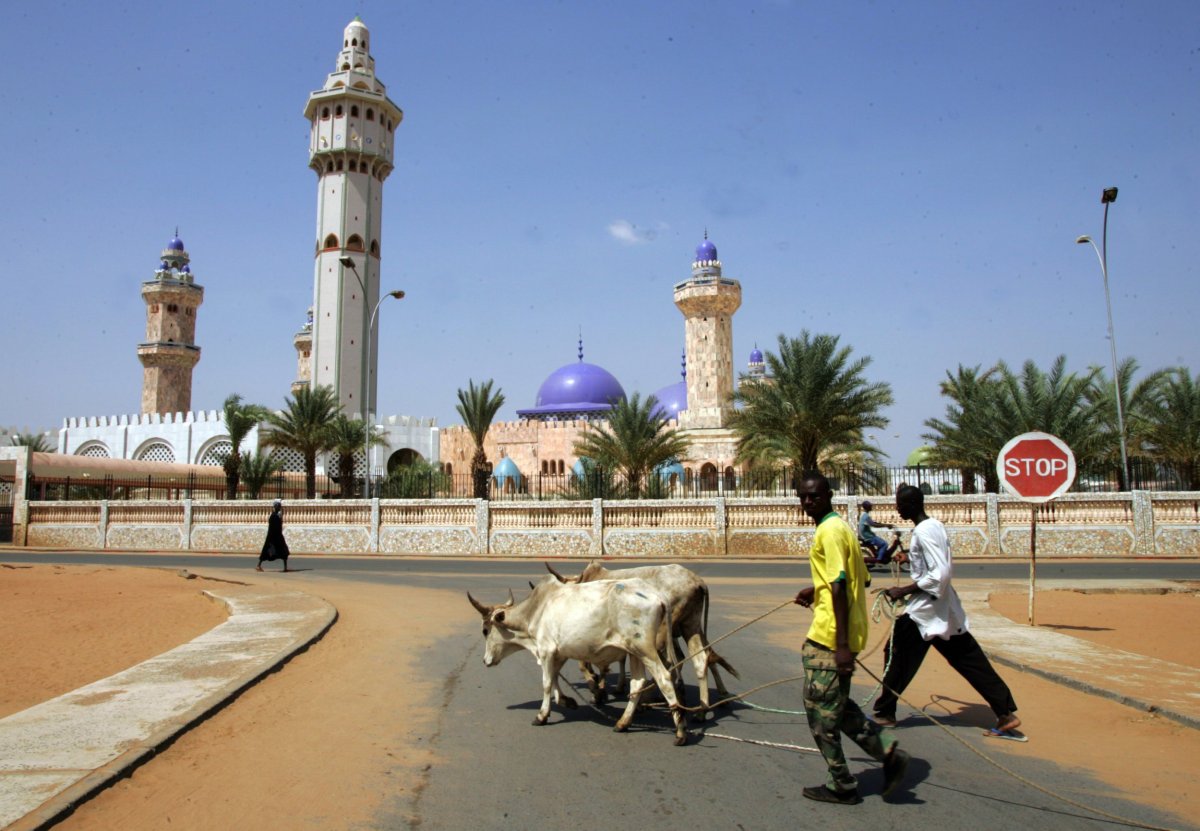
The sight of a million Muslims on pilgrimage usually brings to mind images of the Saudi holy city of Mecca, where the annual hajj brings followers of Islam together from around the world.
But last week on Africa's west coast, up to 1 million people are thought to have traveled to Senegal for a pilgrimage to venerate a mysterious 19th-century Sufi religious leader who was exiled by French colonial authorities and is spoken of in saintly terms by his followers.
The Grand Magal of Touba—as it is known in the local Wolof language—is one of the biggest religious events in Islam and takes place in Touba, Senegal's second-most populous city. It celebrates the life and teachings of Amadou Bamba, the founder of the Mouride Brotherhood, a major sect within Sufi Islam.
What Is Sufi Islam?
Islam is usually thought of in terms of one of its two main variants. The vast majority of the world's Muslims follow Sunni Islam—which is dominant in the Persian Gulf, across Africa and many parts of Asia—while a minority follow Shiite Islam, most notably citizens of Iran.
Sufism is not a third sect of Islam but rather a mystical aspect of the religion that is practiced across Sunni and Shiite Islam. Sufis often focus on the ascetic elements of religion—disavowing material wealth and possessions—and have distinctive types of prayer, including the recitation of the names of Allah, sometimes to music. Sufis belong to orders, known as tariqas, with a master, or murshid, who acts as a spiritual director.
Who was Amadou Bamba?
Bamba was born in Senegal in the mid-19th century to a father who was a religious teacher in the Qadiriyya sect, Senegal's oldest tariqa. But as a young man, he founded his own religious order, known as the Mouride Brotherhood, with an emphasis on the value of hard work and submission to authority.
Even though Bamba was an avowed pacifist, he was viewed as a rabble-rouser by French colonial authorities in Senegal, which gained its independence only in 1960. The authorities exiled Bamba to Gabon and later Mauritania, but the dismissal only contributed to the stories bubbling up around him. In one particular tale, after being forbidden from praying on the boat to Gabon, Bamba leapt into the sea and prayed on a prayer mat that miraculously appeared on the surface of the water.

In the early 20th century, Bamba was allowed to return to his native Senegal. The French authorities even awarded him the Legion of Honor, the highest French military accolade, after he enlisted his followers to fight in World War I. Bamba died in 1927 and is buried near the Great Mosque of Touba, about 120 miles from the capital city of Dakar.
What is the Mouride Brotherhood and what do they believe?
More than 95 percent of Senegal's population is Muslim, and most belong to one of the four main Sufi brotherhoods, of which the Mouride is one. There are thought to be between 3 million to 5 million Mourides in Senegal, according to the BBC. Since Bamba's death, the Mouride Brotherhood has been headed up by his sons and grandsons. The current leader of the group, Sidi Al Moukhtar Mbacke, is Bamba's grandson.
Following the example of its founder, Mouridism emphasizes hard work, and many Mourides are entrepreneurs. The Mouride Brotherhood is also nonviolent: Bamba encouraged a greater or intellectual jihad —the Arabic term for "struggle"—over negativity, ignorance and physical combat.
Read more: The truth about child trafficking in Senegal
Some of the order's most famous members include Abdoulaye Wade—Senegal's former president, who was voted out in 2012—and Youssou N'Dour, one of Africa's best-known musicians.
What does the pilgrimage entail?
The annual pilgrimage to Touba has Mourides from around Senegal and the world descend on the city on the 18th of Safar, the second month of the Islamic calendar—which this year corresponds to approximately November 7. Mourides visit the Touba Grand Mosque and pay their respects at Bamba's mausoleum, which they believe to be infused with his spiritual power.
Pilgrims will also listen to talks from religious leaders, sing poems written by Bamba and meet with their own personal religious guides. (This year's pilgrimage was hit by tragedy after two buses collided, killing 25 people and injuring at least 12. One of the buses was reportedly heading to Touba for the pilgrimage.)

For those unable to make the journey, parades are often held in towns and cities to commemorate Bamba. Members of the Mouride Brotherhood in New York have been seen gathering for peaceful parades through the city's streets, carrying U.S. and Senegalese flags.
Uncommon Knowledge
Newsweek is committed to challenging conventional wisdom and finding connections in the search for common ground.
Newsweek is committed to challenging conventional wisdom and finding connections in the search for common ground.
About the writer
Conor is a staff writer for Newsweek covering Africa, with a focus on Nigeria, security and conflict.
To read how Newsweek uses AI as a newsroom tool, Click here.








